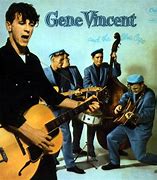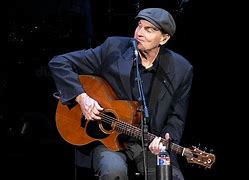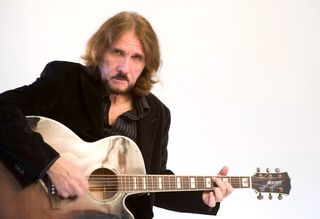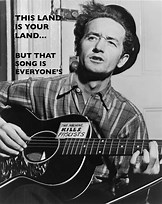BIG STORM COMING,…one of these days
BIG STORM COMING,…one of these days
predicts Norman Warwick.

Born in Hammerfest, Norway in1957, Steinar Albrigtsen (left) grew up in Tromsdalen, Tromsø. Debuted on stage with Jørn Hoel at age 15. He used most of his time in 80’s and 90’s to establish himself musically. He visited the whole country as a street-musician, additional studio artist, TV-Performer before releasing his debut album, Alone Too Long, in 1990. He became a well-respected guitarist and country & roots musician and one of Norway´s biggest selling ´country´ artist.
I was fortunate to meet him and enjoy a couple of interviews with him in the summer of 1993 when he toured Britain to promote his album on RoundTower, his first with a British label. During that brief tour Steinar was befriended by his label-mate, and one of my favourite American song writers, Tom Pacheco. Steinar had already recorded four of Tom´s songs before they recorded together to make Steinar´s British debut album, Big Storm Coming.
The interview I managed to grab with him on our first meeting after his gig at The Triplex Club at St. Helens was cut short because of a snaking queue was waiting patiently for him to sign the cds they had bought. It looked as if everyone in the venue had handed over a tenner or whatever the asking price was, but so good had been the show that it was really no surprise. Steinar graciously made time for me at then end of the evening.
My first question was about how he managed to grow up in Norway on a musical diet of blues and roots music.
´I got into music,´ he explained, ´when I was about six years old.´

´An uncle visited me from overseas, bringing with him Hank Williams albums as well as records by Billie Holiday and Edith Piaf (right). He brought me to that music and showed me what ´soul´ meant in music. I was only six years old but it made me cry. People were wondering what was the matter with me, as if my milk was sour or something, but I just pointed to the turntable. I had been listening to Piaf and there was something in her voice that touched me. Since then I´ve always most loved music that has sprung from the soul,…. Merle Haggard, George Jones, Willie Nelson,… you name it. Very good songwriters tell stories you have to believe, because they are singing about their life.´
Given that it was surely self-evident that those lives such songwriters were describing were very different from how life was in Norway I wondered he felt such a strong connection.

´ ´A love song is universal´,´ he reminded me., ´ ´whether in Bangladesh, England, Norway or the USA, dealing with cheating, and girlfriends leaving and songs like He´s Leaving Her Today by George Jones really tell a universal story to any man who has ever been deeply in love with a woman. It may seem full of cliché, but life is one big cliché and sometimes when you feel down, or stupid, a country song comes on the radio and you say, yes, wow, that´s my life they´re singing about. So for me, even in in Norway, it has always been really easy to relate to country music lyrics.´
I had heard that Steinar had received a grant to enable him to visit Austin Texas, where great songwriters seem to commune and I wondered how such a grant had come about.

´It was after I had become quite well known in Norway through tv shows. This was before I recorded my first album when I was involved in a tv series dealing with old rock and roll numbers which gave me the chance to do neat arrangements of songs like Only The Lonely by Roy Orbison, and some rockabilly stuff by people like gene Vincent, which is not too far from country music. The newspapers saw me, wanted to hype me and boost their sales and awarded me this grant. Of course, I was really happy. I´d already been to Texas in 1989 and already knew Austin a little, but in 1990 I used the grant to go back there and this time I met Eric Moll and other fine songwriters whose songs I included on my first album, Alone Too Long..

I´m still influenced by Nordic folk-singers and that might account for the way I twist my voice. After hearing George Jones sing James Taylor´s Bartender Blues I came to understand there was more to country music than a whining steel guitar. many people have said I sound like a Norwegian folk singer. I got into that for a little while and I´ve even had good vibes off traditional folk singers and that really please me because I want to sound as original as possible. if you´re going to sing the blues you should sound like you mean it. That´s why everything has to spring from my heart and my soul.

I do see a line of progression in my recordings, I think. Although I´had sung a time or two or three on albums for friends, Alone Too Long was my first time in the studio when it was actually me in the middle with my project I had to sing and arrange the songs. I was very humble and listened to everything the producer had to say and feel that, although I sang the songs in a pretty good way. Nevertheless, by the time I came to the Bound To Wander album I felt more secure about my own abilities and I guess I took some more chances. By then I had met Tom Pacheco (right) and was more sure of myself and then on Big Storm Coming the process of working with Tom in the studio was very, very smooth. We had no arguments about anything, either with the producer or with each other, and to me the album is a very soulful thing.
In my early youth I was a little radical and was singing songs about what was happening with issues like Norwegian fishing rights. I was working with human rights groups supporting the people in Chile and was concerned about the Russians marching into Czechoslovakia. I was not so much into politics as into humanitarianism, and ethical concerns and when Tom Pacheco came up with songs for big Storm Coming like I Had A Dream I felt it was important to get those songs out. The world is really crazy with greed now, capitalism is growing and growing and I felt the most important contribution I could make was to sing about it, and in actual fact the song Beaches Of Rio, the first song of the album has drawn attention to the charitable le work there and helped raise money to help the children who were being shot in the streets of Rio. That´s how music can function.´

I agreed with Steinar´s world view, and wondered aloud to him where had all the protest singers gone. I had grown up on Woody Guthrie (left), Seger and Dylan, Tom Paxton, Donovan and Joan Baez. In 1993, two decades and more since those heady adolescent days it now seemed as if Tom Pacheco might be the last protest singer standing, and even he made comment rather than overt protest.
Tom Pacheco (born November 4, 1946 New Bedford, Massachusetts.) is an American folk singer-songwriter and guitarist.
Tom’s father, was a guitarist who played with Django Reinhardt as well as solo in the clubs of Europe before returning to the U.S. to raise a family and open a music store, where he also taught guitar.
At age 19, Tom released his first solo album: Turn Away From The Storm, a collection of all-original folk songs.
He left Massachusetts to study at Hofstra University in New York City, where he formed the band The Ragamuffins, which supported Jimi Hendrix
I came to know Tom when he signed to RoundTower and toured the UK for Ian Johnson´s Stampded promotions agency, and though was then, and is still perhaps, too little known he is a bright star in my personal playlist of illuminaries. It seems that Steinar reards him as highly as I do.
´There are a few protest singers around,´ Steinar assured me, ´but Tom Pacheco is a very humble man. There are people in Norway who really see him as some kind of reincarnation of Jesus Christ, and I have to say he is the nicest human-being I’ve met in my life. It is important to protest, to use your elbows and barge your way in to be heard. If you´re not nasty, people overlook you or, if you’re an artist, simply don´t book you. Its important to put yourself out there.´
Agreeing with Steinar´s observations on Pacheco I tell him that I always think of Tom as the Alfred Hitchcock of song because, as with the greet man´s films there is, in Tom Pacheco’s songs, something not quite right with the picture. Something disturbing.

´You´re right,´ he said. ¨His songs do make perfect movie scripts. Let me tell you a story he is too modest to have told you, I´m sure. He was gigging in Nashville once and he noticed a particular lady in the audience taking notes as he played one particular song. She was a scriptwriter and took the story of Robert and Ramona and turned it into Thelma And Louise, a very successful film. I myself am working on a screen play and script draw from Tom´s song, Long Gone, off his Tales From The Red Lake album. What amazes me is the number of great story songs Tom writes. Thelma and Louise changed one of the characters to a woman, but the story, and, of course, the driving over the cliff at the end were all in Tom´s story.´
I mentioned that I had always thought songs like Black And Blue or Ophelia, both by Tom, would lend themselves to cinema.
¨Yes. You can see the movie in front of you as you listen to those songs. And also The Sailor, which Tom actually wrote about my dad, is amazing because I know he put it together from fragments of conversations we held over the course of several weeks.
I´m hardly a songwriter, although I have developed my own style of singing and playing guitar form all those people who inspired me, such as Merle Haggard and James Taylor. After meeting Tom, though, I realise the song-writing part of me is not fully alive. I feel more like an instrument or a carrier of the bribes. In Norway I have a very big following and have taken Tom with me on this big celebrity trip, and I can see it in his eyes that he appreciates that, because if anybody deserves celebrity and fame its Tom Pacheco. But he wants to write with me, so I can contribute bits of melody and ideas to stories but the lyrics I leave to him. He is a genius as a writer, but I play a lot of instruments and write arrangements. The gigs we´ve played have been very successful, with people saying his rough voice and my smoother voice blend very well, and I love working with the man´
As I listen to Steinar speaking, I am actually thinking about the music smoothness of the album and how that somehow makes even more jarring its stark images, such as the image of a ten year old prostitute with a fixed smile on Beaches Of Rio, for instance.
He is obviously aware of the lyrical and musical counterpoint and says ´the subject matter of the songs can be scary and too much for an audience and we have to remember that. As we recorded From A Window we heard about the kidnap and murder of a young boy in Warrington and that made Tom revise his lyrics slightly and he also updated lyrics about the Serbia / Bosnia situation even as we recorded, but to tell the truth we recorded that album not expecting to sell thousands but because we felt what we had to say was important. It was very successful, though, because Norway is a country with a strong social conscience, although I don´t know how it will sell over here. The producer did a good job, though, and people say Tom´s vocals on this album are the best they´ve heard from him.´
because Norway is not automatically identified with country music I wonder what unique contribution Steinar feels he can make to the genre.
´Living on the edge of civilisation, in one of the northernmost towns in the world, with a little Laplander blood in my veins accounting for my dark hair and brown eyes, I live with warm friendly people who are hungry, still, for information as we were when we grabbed those old records off the boats back in the sixties. So I can look and learn and sing honestly about what I see from my vantage point on top of the world. British fans will get to know me when Tom and I and a really good bass player, tour in September. In fact, tomorrow I go over to nashvi8lle to help Tom record his own new album, The Luck Of The Angels, that has a common theme of guardian angels. I´d like to record in Nashville myself and I would mix it in Norway. Maybe I could ask my new friend Johnny Cash to sing a track on the album, perhaps on a song about the state of the world as perceived by Tom Pacheco.
I brought the interview to a close by asking, politely I hoped, how difficult it was for this man who was a big star in his own country to keep his ego in check when on a ´working ‘visit to a country where he is a virtual unknown act.
´That´s a really good question, ‘he responded, much to my relief. ´I´ve been thinking about that recently. The press create celebrity and form ego, but I´m still this little boy from this little town. Having a great success in Norway, albeit a country of only a few million people, breeds confidence but, to keep the ego in check, I just remind myself how relatively small my country really is. I just have to remember where I come from but this tour has been really great. The Weavers in London last night, was a good gig, and there was a folk club in Chester that was really special. people list ended,…. really listened. That´s what music could do.

It complemented my article ín Country Matters that on the page facing was a review of the Big Storm Coming album written by our review editor John Nelmes, who nominated it as the magazine´s Album Of The Month. He noted a tighter conciseness in Pacheco´s lyrics and how Steinar´s excellent arrangements might have contributed to that. Mr. Nelmes. looked at every track in some details and concluded by saying the album would be spending plenty of time under the needle.
Given that other albums spotlighted in that April 1993 edition of Country Matters included releases by Sawyer Brown, Mary Black, Dolores Keane, The Judds, Kenny Rogers, Marty Stuart, Willie Nelson Susie Bogguss, and Barrence Whitfield with Tom Russell, Kathy Chiavola, Jimmie Dale Gilmore and Janis Ian then Big Storm Coming had to have made a great impression to be placed ´ Top Of The (country Matters) Pops.
It was the songs of Tom Pacheco that laid the first piece of common musical ground that I and my then early-teen son were each prepared to admit to. I had taken Andrew with me to a gig I was reviewing by Tom During the sound -check Tom asked Andrew who he was, and when Andrew told him he was my son, Tom said (and I exaggerate only slightly here) , ´ sit down, son, and i´ll you about my life ´ life´ . So taken was my lad by Tom´s vivid story telling and persona of long haired rock idol meets thoughtful sage, that when Andrew then had the opportunity a few weeks later to adopt a wild, long haired cat from the nearest animal sanctuary, he asked if we could call it Pacheco. We did, and over the next twenty years or so not only Andrew, but also a cat called Pacheco listened to a lot of music by a cat called Tom !
The Big Storm, though made me look like music´s Michael Fish, weatherman. He failed to predict a big storm that happened. I happened to predict a big storm that never came !
Nevertheless, that doesn´t mean anything,……………………. a very famous American musician once told me that ´we must intend what we write for light of years of travel´.
I have tried to follow that maxim ever since, and it is a very reassuring thought when, for whatever reason, the big storm an artist is seeking to bring about doesn´t actually happen, there is always the chance, as John Stewart always hoped that even when I´m gone, maybe some lonesome picker might find some healing in my songs.´
Steinar and Tom, collaboratively and individually, created music that, although it might still have many light years left to travel, will nevertheless continue, like all good music, will to find new pockets of audience.
This article (c) Norman Warwick was first published in Country Matters in 1993




Leave a Reply
Want to join the discussion?Feel free to contribute!